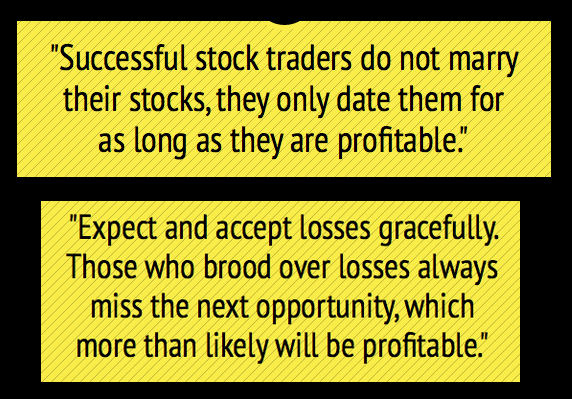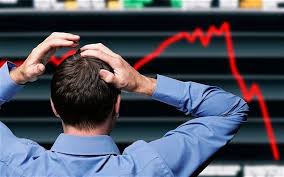Super Gann Trader Academy which conducts stock market institute in Delhi, offers free trader awareness lessons.

stock market
stock market Beginners (traders) in trading are generally interested in day trading. Day trading has the glamour and excitement. Traders like the idea of constantly jumping in and out of the market and making big profits on daily basis. Day trading can make your heart beat faster, raise your blood pressure and get you adrenaline rush.
Every day, newspapers and TV news channels reflect on shares of companies that made big moves the previous day or in the recent past. They explain these price moves in great detail, giving the illusion that they are predictable, and hence, tradable. This catches the imagination of day traders and they calculate thousands or millions that could have been made had they participated in such moves. It seems fun- just few clicks and you could make millions.
This is an illusion similar to TV commercials showing the use of a deodorant or perfume that makes girls fall all over you.
Let’s do a reality check of the day trading business.
Day Trading
- The day trader enters and exits the market during six hours of a market session (one day session). They have very low margin (fund) requirement for taking an intra-day market position.
- There is no risk of a big overnight move against their position. This permits them to take large leveraged positions.
A typical day trader having Rs 50,000 in his trading account may have a position worth Rs 500,000 or more during market hours.
High leverage is a double-edged sword. When the market moves against the trader’s positions, losses are much higher because of high leverage.
But there are some distinct disadvantages of day trading.
- Intra-day price moves are mostly random fluctuations and are termed as noise. This makes it difficult for trading.
- As day traders need to close their position on the same day, they cannot take advantage of trending market. This limits the trader’s profits, even when the trader is right.
- To be a successful day trader, you must have a very high success rate (60-70%).
- The brokerage and slippage costs are very high for day traders. The slippage cost is the difference between order price and the actual buy or sale price. Day traders trade volatile markets to make fast money. However such volatile markets mean high slippage cost.
- The securities transaction tax also adds up to the cost.
- The cost of getting reliable live market data is high.
- Profits if any are added to traders other income as business income and are taxed at a higher rate.
- They need to compete against automated trading (computerized high frequency trading) from big traders.
- The stress levels are very high in day trading. The high stresses can reflect on the trader’s health if not handled properly.
These factors make it very difficult to be successful in day trading.

By Ben Levisohn
I was 25, teaching preschool in Colorado, and getting tired of listening to a childhood friend tell me he was making more money each day “day trading” than I made in a month. When he offered me the chance to come to New York and learn how to do it too, I jumped.
At the time, of course, I knew nothing about the stock market or how it worked. But I gradually learned. At a now-defunct day-trading firm, I was taught how to trade, but the system I was taught was useless if I didn’t have the mental bent to stick with it. At least there were rules I could follow. Some were ready-made; others I had to figure out myself. Some came easily; others took time to internalize. I’m no longer a day trader, but the rules are still with me. Here are the ones that helped me earn a living as a day trader for nearly eight years.
Is there any good alternative option?
Position Trading
- A position trader takes a market position for a few days to a few weeks or months.
- This limits his number of transactions. This reduces his brokerage, slippage cost and transaction taxes.
- Position traders can be successful, even when their success rate is very low (30-35%).
- Position trader’s profits are also classified as short term capital gains, and are taxed favorably.
- Since a position trader does not need to close his position at the end of the day, he is able to use trending markets and get higher returns without adding to his cost of brokerage, slippage and transaction taxes.
- Position traders compete against mutual funds and hedgers. Mutual funds do not buy and sell their portfolios on a day-to-day basis, and hence, offer limited competition. Hedgers take positions to protect their main business and do not trade for profits.
- Data cost is very low for position traders.
- A position trader keeps his positions small (low leverage), to limit the risk of overnight market moves against his positions.
- Position traders can use trading systems to make plans when the market is closed and place his orders.
- Position trading does not require trading positions to be monitored during market hours; hence the trader can use his time more productively during the day.
- Position trader using trading systems to trade, have little or no stress.
 Once we understand the advantages and disadvantages of both types of trading, we can choose to be either a day trader or a position trader.
Once we understand the advantages and disadvantages of both types of trading, we can choose to be either a day trader or a position trader.
Position trading with a good trading system is a game that traders can win. But before getting into this business, they need to learn the trading skill.
 We train the traders in the use of trading systems and help them become top traders. Join our advanced level program to learn the trading skill. Our systems are best suited for position trading.
We train the traders in the use of trading systems and help them become top traders. Join our advanced level program to learn the trading skill. Our systems are best suited for position trading.
Here the List of Blogs in this Series

